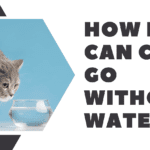Introduction
Cats have always been thought of as expert hunters, because to their ability to suddenly pounce on their victim. Mice are a frequent victim of their attacks. This article will answer the question, “Do cats eat mice?” and delve into the intriguing world of cats and their innate need to hunt.

Cats and Hunting Instincts
Cats have been revered for their superior hunting skills for millennia. Predatory tendencies inherited from their wild ancestors are still present in today’s tame cats. Because of the innate nature of this activity, they are extremely effective hunters.
The Natural Predatory Behavior
The predatory instincts of a cat kick in whenever it comes into contact with possible prey. They zero in on their prey with laser precision and stalk it with incredible dexterity. They spring into action with incredible swiftness, grabbing their victim in their keen claws. Mice, and other small creatures, are no match for their sharp senses and lightning-fast reactions.
Benefits of Cats Hunting Mice
Cats There are a few upsides to hunting mice. First, it satisfies their base needs and makes them feel mentally and physically energized. Cats can avoid the destructive behaviors associated with boredom by getting plenty of exercise and releasing pent-up energy through hunting. In addition, cats can help reduce the number of mice in an area, which can cut down on the risk of infestations and property damage.
Do Cats Eat Mice?
It’s true that felines enjoy a tasty mouse. It is usual for cats to eat mice they have caught. Cats must consume a diet high in animal protein in order to survive as they are classified as obligate carnivores. Mice provide an organic option that meets their dietary needs.
Factors Influencing Cats’ Prey Preference
Cats have a hardwired drive to catch mice, but their preferred prey varies from cat to cat. The tastes of individual cats, the availability of alternative prey, and the state of the environment are only few of the variables that can affect what cats decide to eat. Despite this, mice continue to be a common prey item because of their small size, high mobility, and widespread distribution.
Can Cats Survive on Mice Alone?
Even while cats can eat mice, they shouldn’t have to. To achieve their nutritional demands, cats should eat a well-rounded diet. Taurine and other vitamins and minerals may be lacking in a diet consisting only of mice, which could cause to shortages and health problems over time.
Nutritional Requirements for Cats
High-quality commercial cat food designed to suit the nutritional demands of cats is an essential part of any healthy cat’s diet. These foods have been formulated to give your cat the right amount of protein, fat, carbs, vitamins, and minerals they need to thrive. The optimum food for a cat depends on its individual needs, which can be determined through discussions with a veterinarian.
Risks Associated with Mice as Food
Mice may look delicious to a cat, but they shouldn’t eat them because of the health hazards. Mice are a potential health risk to cats due to the infections, parasites, and toxins they may carry. The mice must be free of any contaminants or chemical treatments that could hurt the cat.
Health Implications for Cats
Mice present a number of potential health hazards for cats. Cats can pick many parasites from eating mice, including fleas, ticks, and worms. Infestations, pain, and even death can result from these parasites in feline hosts. Diseases such as leptospirosis and hantavirus can be carried by mice and transferred to cats by direct touch or eating.
Other Prey Options for Cats
Although mice are a typical food source for cats, there are other animals that can fill their nutritional needs. Commercial cat food has been developed to provide all the nutrients an adult cat needs. To make sure cats get all the nutrients they need, it has a combination of animal and plant-based proteins, lipids, and carbohydrates. Providing both wet and dry commercially prepared cat food helps give a varied and balanced diet.
Managing Mice Infestations
A mouse infestation is a serious problem that needs immediate attention. Mice can multiply rapidly, posing a threat to human and animal health. To control mice populations, it’s best to hire a professional pest control agency that uses humane methods to get rid of the rodents completely..
Training Cats to Hunt Mice
Cats have natural hunting instincts, but not all of them will use those instincts without some instruction and training. Their natural drive to hunt can be stoked through interactive play with toys that look like mice. When cats are rewarded for hunting behavior with treats or praise, it strengthens their innate skills. It’s crucial to remember, though, that not all cats will exhibit an interest in hunting.
Conclusion
Cats are born hunters with a strong drive to pursue and capture small animals like mice. Even though they consume mice, it’s important to make sure they get all the nutrients they need. In order to maintain optimal health, cats require commercial cat food. In addition, you should be cautious about feeding your cat mice because of the possible dangers they pose to feline health.
FAQs
1. Can all cats effectively hunt and catch mice?
Even though most cats have a natural prey drive, not all of them go out of their way to seek and catch mice. Cats can vary greatly in their level of interest in hunting and their preferred types of prey.
2. Are there any dangers if a cat consumes a mouse that has been poisoned by traps or rodenticides?
A cat’s health is in serious jeopardy if it eats a mouse that has been poisoned by traps or rodenticides. Cats exposed to any of these chemicals should be examined by a vet right away.
3. How can I prevent my cat from hunting mice outdoors?
Cats’ innate tendencies to seek mice outside can make it difficult to keep them inside. However, cats are less likely to encounter mice if they spend most of their time indoors or are allowed only supervised outdoor time.
4. Should I be concerned if my cat eats a mouse it caught outside?
Even though it’s in a cat’s nature to hunt and eat prey, you should still keep an eye on how they act and how they feel afterward. A trip to the vet is in order if you detect any symptoms of disease or strange behavior.
5. How can I ensure my cat receives a balanced diet if it refuses commercial cat food?
Talk to your vet about other options if your cat won’t eat commercial cat food. To meet your cat’s nutritional needs, they can suggest appropriate meals or supplements.
Disclaimer:
At TheCatCare.org, we take great care to ensure that the information we provide is accurate, up-to-date, and reliable. However, it’s important to note that we are not medical advisors or licensed veterinarians, and the information we provide should not be considered a substitute for professional advice.

Franky Watson is a certified pet care specialist with over 10 years of experience working with animals of all kinds. He has a degree in veterinary science and is passionate about educating pet owners on how to provide the best possible care for their furry friends. In addition to writing articles on pet care topics, Franky Watson also volunteers at local animal shelters and fosters animals in need. When he’s not caring for animals, he enjoys hiking and spending time with her own pets, including two cats.





